- Home
- Michael White
Jack Pendragon - 02 - Borgia Ring
Jack Pendragon - 02 - Borgia Ring Read online
Michael White has been a professional musician, a science lecturer, newspaper columnist, science editor for GQ magazine and a series consultant for the Discovery Channel’s The Science of the Impossible.
First published in 1991, he is now the author of 30 books, including the bestselling novels Equinox and The Medici Secret. Under the pen name Sam Fisher he is also the author of State of Emergency, the first in a series of action thrillers.
He was awarded the Bookman Prize in the US for best popular science book of 1998 for his biography of Isaac Newton, The Last Sorcerer, and is an Honorary Research Fellow at Curtin University and lives in Sydney with his wife and four children.
For more information visit Michael White’s website at: www.michaelwhite.com.au
Also available by Michael White
Equinox
The Medici Secret
As Sam Fisher
State of Emergency
All rights reserved. No part of this book may be reproduced or transmitted by any person or entity, including internet search engines or retailers, in any form or by any means, electronic or mechanical, including printing, photocopying (except under the statutory exceptions provisions of the Australian Copyright Act 1968), recording, scanning or by any information storage and retrieval system without the prior written permission of Random House Australia. Any unauthorised distribution or use of this text may be a direct infringement of the author’s and publisher’s rights and those responsible may be liable in law accordingly.
The Borgia Ring
ePub ISBN 9781742743301
Kindle ISBN 9781742743318
A Bantam book
Published by Random House Australia Pty Ltd
Level 3, 100 Pacific Highway, North Sydney NSW 2060
www.randomhouse.com.au
First published in Great Britain by Arrow Books in 2009
First published in Australia by Bantam in 2009
Copyright © Michael White 2009
The moral right of the author has been asserted.
The Borgia Ring is a work of fiction. Any resemblance between these fictional characters and actual persons, living or dead, is purely coincidental.
All rights reserved. No part of this book may be reproduced or transmitted by any person or entity, including internet search engines or retailers, in any form or by any means, electronic or mechanical, including photocopying (except under the statutory exceptions provisions of the Australian Copyright Act 1968), recording, scanning or by any information storage and retrieval system without the prior written permission of Random House Australia.
Addresses for companies within the Random House Group can be found at www.randomhouse.com.au/offices
National Library of Australia
Cataloguing-in-Publication Entry
White, Michael, 1959–.
The Borgia ring.
ISBN 978 1 86325 689 6 (pbk).
A823.4
Cover images by Getty Images and Corbis
Cover design by Christabella Designs
CONTENTS
Cover
About the Author
Also available by Michael White
Title Page
Copyright
Imprint Page
Prologue
Chapter 1
Chapter 2
Chapter 3
Chapter 4
Chapter 5
Chapter 6
Chapter 7
Chapter 8
Chapter 9
Chapter 10
Chapter 11
Chapter 12
Chapter 13
Chapter 14
Chapter 15
Chapter 16
Chapter 17
Chapter 18
Chapter 19
Chapter 20
Chapter 21
Chapter 22
Chapter 23
Chapter 24
Chapter 25
Chapter 26
Chapter 27
Chapter 28
Chapter 29
Chapter 30
Chapter 31
Chapter 32
Chapter 33
Chapter 34
Chapter 35
Chapter 36
Chapter 37
Chapter 38
Chapter 39
Chapter 40
Chapter 41
Chapter 42
Chapter 43
Chapter 44
Chapter 45
Chapter 46
Chapter 47
The Facts Behind the Fiction
Also available in Bantam
Rome, August 1503
Pope Alexander VI had a head like a huge scrotum. Grease dribbled down his chin and his usually mean black pupils dilated as he contemplated the mountainous sweet pudding placed before him. His daughter Lucrezia Borgia looked at him and felt vomit rise in her throat. She had been only twelve when her father first introduced her to his sexual proclivities. She had been forced to masturbate with a crucifix while she watched him sodomise a nine-year-old servant boy. When the bloated old man came he had grunted like a spiked boar.
Next to her father sat her brother, Cesare. Once, after he had kept her awake all night with his insatiable lust, he had boasted about killing dozens of men, and of how one day he would slaughter their father and have his own chance at the papal throne. But now Cesare Borgia was ill. It was the French disease. Everyone knew it. His face was covered with running sores and there was a madness in his eyes worse than anything she had seen in them before.
To Lucrezia’s left sat the boy alchemist, Cornelius Agrippa. A tender sixteen-year-old with dark, piercing eyes, he was both her lover and a fellow traveller on the road to occult knowledge. Agrippa had taught her a great many things: ways to retain her youthful beauty, ways to make every man adore her. Most importantly, he had taught her new ways to kill. Together they had produced murderous potions that brought death with thrilling speed and left no trace.
The last figure to fall under her gaze was Domenico Gonzaga, youngest son of Francesco II, Marquis of Mantua. Domenico’s handsome face was just beginning to show the signs of too much good living. He and Cesare had, she knew, played together as children, but now the two men despised each other. It was her father, the Pope, who had arranged for the Marquis’s son to visit, the latest in a long line of suitors for Lucrezia’s hand. Of course, Cesare had hated them all.
By the end of the meal Alexander was so drunk he could barely stand, but Lucrezia could tell he still had energy left for his favourite pastime. The way he looked at the two black slaves as they helped him from his chair was unmistakable: a look she had seen many, many times. He had once confided in her that the negro boys he had brought into the Vatican could satisfy him in ways nothing and no one else could. It was strange, she reflected, how the men in her life wanted to share with her their most intimate secrets. She relished the sense of power that gave her.
Soon, she found herself alone with Domenico. They were seated close together on a low couch. He ran a finger along her cheek.
‘I’m really not so bad,’ he slurred, breath rancid, lips and teeth stained red by the wine.
‘Whoever said you were, my lord?’
‘You refused to catch my eye at table.’
‘It would have been unseemly.’
Domenico roared with laughter, but his face fell when he saw that Lucrezia was straight-faced and composed. ‘Forgive me, my lady.’ He coughed and tugged at his jerkin.
‘My father arranged this visit, Domenico, not I,’ she said quietly. ‘Your father is wealthy and mine extremely avaricious.’
‘It is true my father is a very rich man and I am heir to his lands. Bu
t I would like to think there is more substance to me than mere money and possessions.’ He moved towards her, breath warm on her neck. He turned her face roughly to his and kissed her hard on the mouth. She could smell the animal taint of his sweat. Before she could stop him, he had his hand up her dress.
Lucrezia made a perfect show of trying to pull away. She was an accomplished actress who knew she could better any player on the Roman stage. She felt a sudden surge of pride. She was in the position of power here, even if this lumbering fool believed he was. She had known her own power since childhood, before the flowering of her sexual maturity. And now, in her twenty-fourth year, she was in full bloom and revelled in the knowledge that she could outperform any cheap whore from the ghetto.
‘My brother will slit your throat and rub his cock with your blood,’ she whispered as Domenico managed to worm his fingers into her undergarments. She felt him freeze for a second.
‘Your father would not allow it,’ he said hesitantly.
‘My father is not the master of Cesare, my lord.’
‘But Cesare is not here.’
Lucrezia felt herself slowly melting like thawing ice as Domenico squeezed himself between her legs. He had freed himself from his hose and she could feel his flesh parting her. She threw back her head and groaned.
‘You believe you dominate me,’ she said thickly, her black eyes holding his.
‘It is no mere belief, Lucrezia, my love,’ Domenico gasped. The beginnings of a cruel smile flickered across his face.
‘But you are sadly mistaken, my lord. You impale me. But I too can impale you.’
Domenico felt a searing pain in the back of his neck. He looked down. Lucrezia Borgia was climaxing, her eyes huge, her groin thrusting back at him. He screamed and tried to pull away from her but felt sapped of energy; he could not move a muscle. Lucrezia kept grinding herself on to him, her face sharp-contoured in ecstasy, her eyes now clamped tight. Then, with her back arched, she froze, shuddered and opened her eyes: the gaze of a falcon ready for the kill.
She pushed him away and he fell back on to the sofa like a mannequin, his erection waving uselessly. He tried to move, but could not. And the pain … the pain was like nothing he had ever experienced. It spread down his neck to his chest. He could not draw breath. Then he felt the liquid erupt from his mouth, a red plume that engulfed his face, reaching his eyes, blinding him. He tried to lift a hand but not a single finger would move. His stomach heaved again and he spewed more blood along with partially digested chunks of pork, chicken and sweetmeats.
Lucrezia was leaning over him. With a cloth, she wiped the blood and vomit from his face so that he could see her. She was holding up one finger. Upon it he could see a large gold ring set with a round-cut emerald. The stone had been levered up and in the opening beneath he could just make out a tiny metal spike coated in red.
Lucrezia smiled sweetly and turned away as Domenico Gonzaga, youngest son of Francesco II, Marquis of Mantua, shuddered his last, and died.
Stepney, Saturday 4 June, 2.16 a.m.
It was still very humid. Almost hot enough for a Bombay night, Amal Karim thought as he made his way across the construction site. The ground was hard. It hadn’t rained for weeks. Most of England had sweltered for a straight run of thirteen days and that afternoon the thermometer had nudged 38 degrees, almost hot enough for the union to shut down the site.
After leaving his jacket in the works hut, he was in a short-sleeved shirt but still sweating profusely. It was very dark, though by now his eyes had adjusted and he could just make out the shapes of heavy plant and mounds of earth all around the site. He took a deep breath of hot, still air and gazed around him. He was standing beside a pit perhaps thirty metres wide and ten deep, its mud walls shored up with steel beams. Wooden planks criss-crossed the hole, supported on scaffolding and liberally coated with dried mud and concrete. On each side of the excavated footings stood construction machinery: a powerful digger, a pile-driver, and two massive trucks with two-metre-high tyres caked in mud. He could just see a truck bearing the black and silver logo of Bridgeport Construction. Lighting a cigarette, he discarded the match.
There was a sound behind him. He spun round and waved his torch towards the dark pit. He was just feeling jumpy, he told himself. Taking a few steps along a plank to his right, he drew hard on his cigarette. Standing still for a moment, he probed the darkness below with the beam of his torch, watching the cigarette smoke dance in its light. At the base of a small depression in the bottom of the pit a grey tarpaulin was stretched. Underneath it, he knew, lay an ancient skeleton.
He had been on the other side of the site when his fellow construction workers had uncovered the bones the previous afternoon. But, like the rest of the crew, he was soon aware of the find. He had run over in time to see the site manager, Tony Ketteridge, and one of the architects, Tim Middleton, leaning over the remains. Middleton had been taking pictures with his mobile while Ketteridge had seemed to be deeply disturbed by what had just been revealed. The man had been under severe pressure for weeks, the build already way behind schedule. The last thing they needed was bureaucratic delay caused by the finding of human remains.
Karim left the plank and dropped the stub of his cigarette on to the hard mud beside the pit, stamping it out. Then, with his torch slicing through the darkness, he walked slowly down the slope integrated into one side of the excavation, to where the skeleton lay. He carefully removed the tarpaulin and shone the beam towards the ground. The skeleton lay on its back, just as it had earlier. By the look of them, the remains were those of a tall, slightly built man. The front of the skull was shattered above one eye and a fissure ran along one side above where the ear would have been. The bones were almost black and looked to be extremely old. There was nothing to be seen around the skeleton apart from a few fragments of broken clay and some large pieces of granite.
Karim thought back to the previous afternoon. There had been a row then about what should be done with the bones. Ketteridge wanted them removed instantly and for the workforce to pretend nothing had been found. But some of the construction workers had objected. Then two of them had turned over the skeleton, and they had all seen the ring. It was gold with a flat, round top made from a green stone, perhaps an emerald.
After that there had been no more arguments. The area was already covered by security cameras, but Ketteridge had asked for a volunteer to patrol the site throughout the night. Karim remembered how he had jumped at the chance of double time, feeling no qualms about the job in the daylight hours.
Now, he crouched down to look more closely at the skeleton and his eye was drawn to the ring. It was on the smallest finger of the skeleton’s right hand. It looked to be extremely valuable, he mused, and for a fleeting moment imagined stealing it and simply vanishing. He would leave his family behind, start a new life somewhere no one could find him.
There was that noise again.
It was closer this time, a scraping sound, a scattering of pebbles. He made to stand up, but as he rose he felt an arm slide around his neck, pulling back his head. He reacted quickly, bunching his fist and slamming his elbow backwards, winding the man behind him. Karim fell forward as his assailant loosened his grip. He felt a sharp pain in his right knee as he landed awkwardly on the hard clay. His attacker let fly with a kick aimed at his abdomen. Karim dodged it, but then, as he scrambled backwards, tripped over the edge of the tarpaulin and tumbled into a pile of dried mud. Turning his head, he saw there were two men with him in the pit. His attacker was the shorter of the two. They were both wearing balaclavas, dark T-shirts, black trousers and gloves. The taller man was standing back a few paces, looking around nervously. The other, the man who had attacked Karim, was now no more than a couple of feet away. Through the holes in the balaclava, Karim could see the man’s dark eyes ringed with sweat.
He backed away from his assailant, just managing to gain some purchase on the dry mud. On the other side of the mound, a line of planks led
towards the sloping path up to ground level. The man who had grabbed him moved quickly around the mound where the ground was harder, cutting off Karim’s escape route. The workman lashed out, landing a glancing blow on his attacker’s shoulder. The man gasped and made a grab for Karim, catching the lapel of his shirt. His fist landed squarely on the workman’s nose and a stream of blood poured from his nostrils into his mouth. Karim kicked him, a move that did little except anger his assailant. But although the Indian was much smaller, he was no pushover. He feinted with one hand. Bringing up the other, he went for the man’s eyes but succeeded only in grasping the balaclava. The other man recoiled and the mask slid up his face as far as his forehead.
It was very dark, but Karim had seen his assailant’s face. Startled, he almost lost his footing on the uneven compacted earth. But as the other man scrabbled to pull down his balaclava, Karim quickly recovered. He swerved to one side and ran up the slope as fast as he could.
By the time he reached the top he was out of breath. The pain in his face was agonising. As he ran, he touched his nose and felt the wetness of blood. The front of his shirt was flecked with red. He glanced back and could see the two masked men charging up the incline behind him. He ran on, ignoring the stabbing pain in his side. It was lighter up here, though shadowed where the streetlights encountered piles of earth and hulking machinery. To his right stood the site hut; beyond that the perimeter fence topped with a concertina of barbed wire.

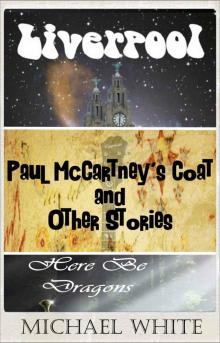 Paul McCartney's Coat
Paul McCartney's Coat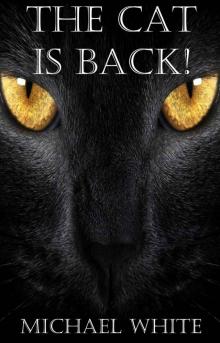 The Cat Is Back!
The Cat Is Back!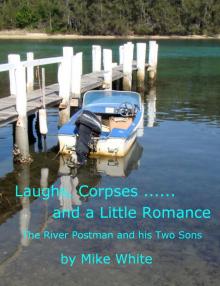 Laughs, Corpses... and a Little Romance
Laughs, Corpses... and a Little Romance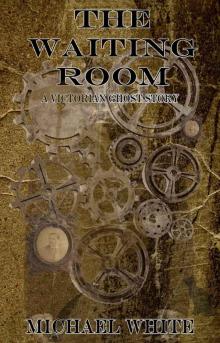 The Waiting Room
The Waiting Room Into the Light- Lost in Translation
Into the Light- Lost in Translation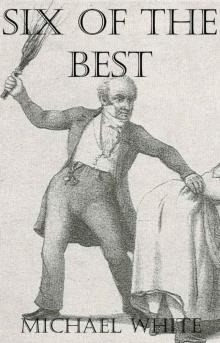 Six of the Best
Six of the Best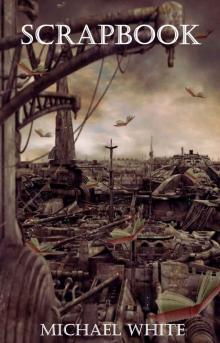 Scrapbook
Scrapbook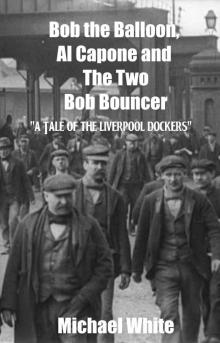 Bob the Balloon, Al Capone and the Two Bob Bouncer
Bob the Balloon, Al Capone and the Two Bob Bouncer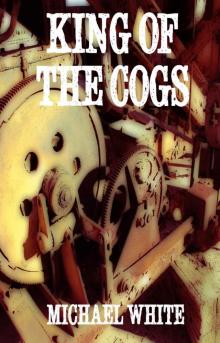 The King of the Cogs
The King of the Cogs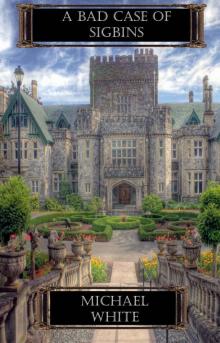 A Bad Case of Sigbins
A Bad Case of Sigbins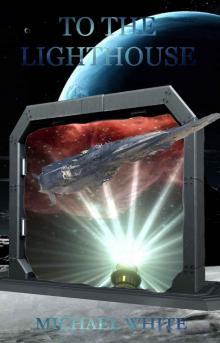 To the Lighthouse
To the Lighthouse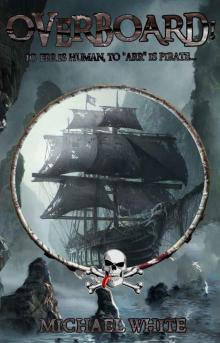 Overboard!
Overboard!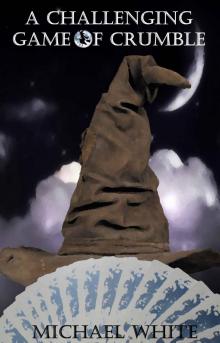 A Challenging Game of Crumble
A Challenging Game of Crumble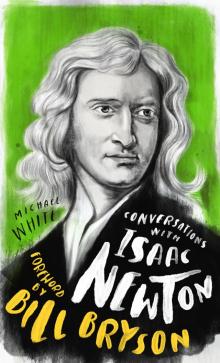 Conversations With Isaac Newton
Conversations With Isaac Newton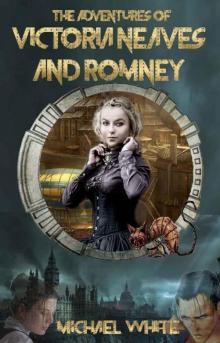 The Complete Adventures of Victoria Neaves & Romney
The Complete Adventures of Victoria Neaves & Romney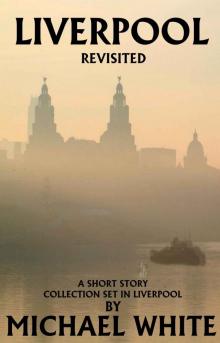 Liverpool Revisited
Liverpool Revisited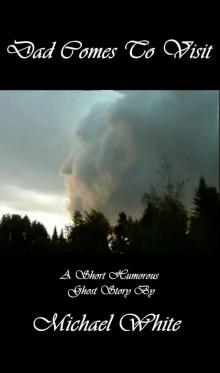 Dad Comes to Visit
Dad Comes to Visit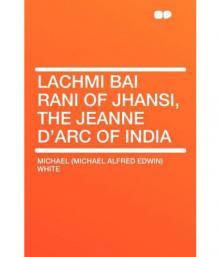 Lachmi Bai, Rani of Jhansi: The Jeanne D'Arc of India
Lachmi Bai, Rani of Jhansi: The Jeanne D'Arc of India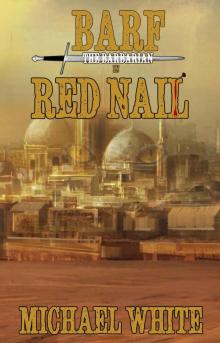 Barf the Barbarian in Red Nail (The Chronicles of Barf the Barbarian Book 2)
Barf the Barbarian in Red Nail (The Chronicles of Barf the Barbarian Book 2)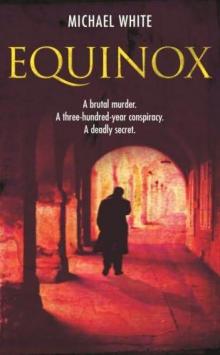 Equinox
Equinox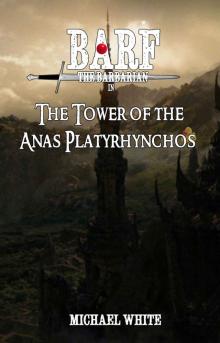 Barf the Barbarian in The Tower of the Anas Platyrhynchos (The Chronicles of Barf the Barbarian Book 1)
Barf the Barbarian in The Tower of the Anas Platyrhynchos (The Chronicles of Barf the Barbarian Book 1)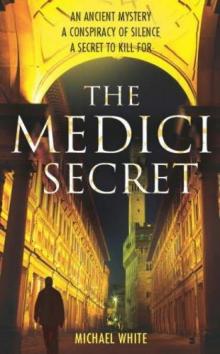 The Medici secret
The Medici secret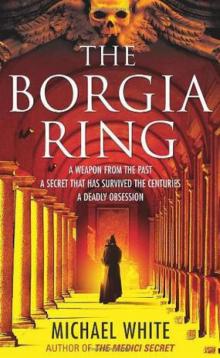 Jack Pendragon - 02 - Borgia Ring
Jack Pendragon - 02 - Borgia Ring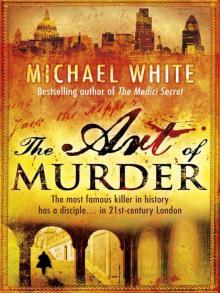 The Art of Murder jp-3
The Art of Murder jp-3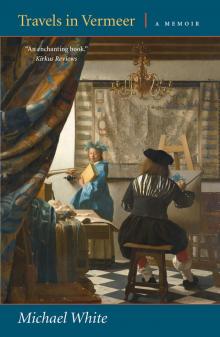 Travels in Vermeer
Travels in Vermeer